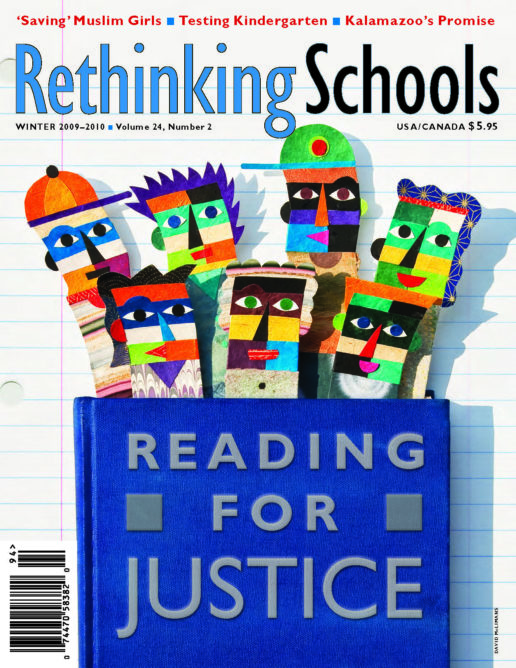Good Stuff 24.2 Sports and Society

A People’s History of Sports in the United States: 250 Years of Politics, Protest, People, and Play
By Dave Zirin
(The New Press, 2008)
302 pp. $18.95
Readicide: How Schools Are Killing Reading and What You Can Do About It
By Kelly Gallagher
(Stenhouse Publishers, 2009)
160 pp. $17.50
Dave Zirin, one of the finest sportswriters in the country, has written A People’s History of Sports in the United States. Zirin says the book, modeled on Howard Zinn’s work in people’s history, “is an effort to resuscitate the political heart that beats in the sports world . . . [and] to have a history that critically examines the political forces as well as the political power at work in the world of sports. It also stands proudly with the tradition of progressive dissenters in sports, [of] people who have attempted to use the world of sports as a platform to advance ideas of resistance.”
The book delivers on this promise. It is well written and provides a powerful narrative of the development of sports in American society from the late 19th century to the present. Zirin writes of racism, gender and class discrimination, homophobia, and other forms of exclusion in the sports world. He chronicles the initially small and then larger triumphs to open up participation in athletics to everyone. He illustrates how events within the sports world and society mirror and influence each other. Zirin describes the lives and struggles of athletes like Josh Gibson, Roberto Clemente, Jackie Robinson, Paul Robeson, Martina Navratilova, Dave Meggesey, Jack Scott, Althea Gibson, and dozens of others who made contributions to the democratization of sports. He also makes it clear that there are still battles to be fought.
I highly recommend this as a text for high school English, social studies, and American history. Sports play such a powerful role in our culture and, in particular, in high school life, that a critical understanding of it is necessary to temper some of its intemperate and negative effects. The book will not kill anyone’s love of the game but, rather, enrich it with a social and political perspective.
Zirin also has a blog that is worth accessing: www.edgeofsports.com. A recent entry was on two pro football players who came out in support of the October 11th National Equality March for Lesbian, Gay, Bisexual, and Transgender Rights in Washington, D.C.
I can easily imagine Zirin’s book and blog being the basis for an elective titled Sports and Society.
As soon as I wrote this last sentence I imagined teachers shrugging their shoulders: “Choose a text, add an elective—what century do you live in, Herb?” But a book about traditions of resistance at least deserves a place in the school library, and a subversive place on teachers’ desks and lesson plans.
Briefly Noted:
Kelly Gallagher’s Readicide: How Schools are Killing Reading and What You Can Do About It defines readicide as “the systematic killing of the love of reading. Often exacerbated by the inane, mind-numbing practices found in schools.”
This book is a powerful indictment of scripted curriculum, high stakes testing, and authoritarian teaching. It also is a marvelous account by an experienced and obviously effective English teacher of how adolescent readers can be taught in a serious, critical, creative, and rewarding way.

